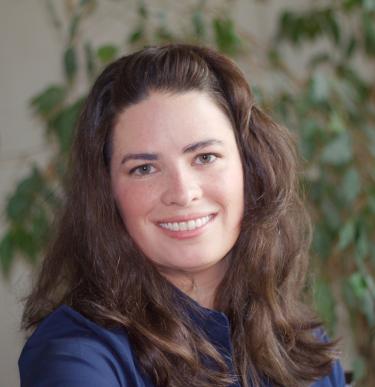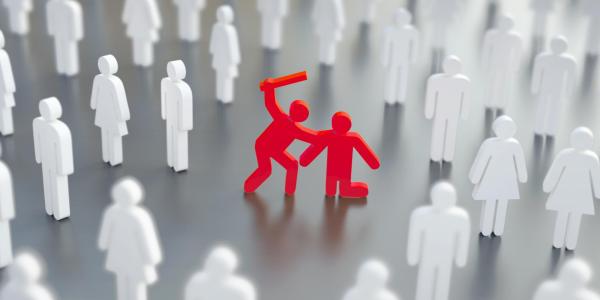And participants in political echo chambers are largely unaware that their positions are becoming more extreme, CU Boulder study finds
Those bemused by political prattle on Facebook or the flag-waving frenzy at both major parties’ national conventions should withhold judgment about citizens who become politically extreme.
“It could happen to you, too, and you might not even realize it,” said Jessica Keating, a PhD candidate in the University of Colorado Boulder’s Department of Psychology and Neuroscience.
Keating’s study, “Partisan underestimation of the polarizing influence of group discussion,” appeared in the July edition of the Journal of Experimental Social Psychology and was co-written with Leaf Van Boven and Charles M. Judd, psychology professors at CU Boulder. The study examined how even short discussions among like-minded people can radicalize individuals, often without their even knowing their attitudes have changed.
“The results of two experiments demonstrate that people underestimate how much a brief group discussion polarizes their partisan attitudes,” Keating said in her study summary. But perhaps worse, people appear to be unaware when this occurs.
“In one study, participants were unaware their attitudes had changed at all, while individuals perceived some polarization of their attitudes in the second study. But in both studies, participants significantly underestimated the extent to which their attitudes had become more extreme,” Keating said.
Keating said the study of group polarization dates back to the 1960s, when the thinking was that group dynamics spawned risky behavior. The “risky shift” turned out be just one example of group polarization
"Deliberation with like-minded others can make most attitudes become more extreme, whether it is the decision to take a more-risky or conservative course of action or in support or opposition to a political attitude,” she said.
That itself could be a bit risky this year.
“The conventions provide all the right ingredients for group polarization to take place,” Keating said. “But it’s probably not necessary to actually be at a convention to be susceptible.” Social media and other political coverage options “give us ample sources that are in line with our own political beliefs, as well as conversations with friends and neighbors.”
Keating’s PhD studies involve applying social-psychological theory to a number of real-world challenges, including retention and performance in undergraduate students, but she was immersed in politics at a Washington, DC, polling firm before returning to academia.
We should be willing to listen to the guy across the table who doesn’t agree with us. Knowing about group polarization and seeking out a diverse array of information sources may keep us from unknowingly slipping toward more extreme opinions."
Her group-polarization research builds on a 2006 work – “Deliberation Day and Political Extremism” — co-authored by former CU Boulder researcher Reid Hastie, which found this group dynamic led Boulder liberals to become more liberal and Colorado Springs conservatives to become more conservative on different policy issues.
Keating’s first experiment was conducted in 2011 and looked at polarized partisans' attitudes about whether Barack Obama or George W. Bush were a better president. The second experiment examined the effects of a group discussion concerning the election of Barack Obama or Mitt Romney in 2012.
The groups were recruited from CU undergraduates, with about 80 participating in the first experiment and about 350 (66 groups of four to six students) in the second. Essentially, the methodology for both was to assess participants’ pre-discussion attitudes, separate like-minded individuals into groups, have them engage in discussion for 15 minutes, and then reassess their attitudes, capturing both their post-discussion attitude and their recalled pre-discussion attitudes. The second study also appointed an extreme discussion leader and included a control condition with no discussion.
“These results suggest that group discussion causes more polarization than simply identifying with a group and contemplating one's own attitudes,” Keating reported. “And although people in the second experiment generally recognized that their attitudes had polarized somewhat, they underestimated their attitude polarization more than people in the no-discussion control condition.”
In other words, “you become more extreme when you engage in discussion, and you aren’t aware of the extent of it,” Keating said. Even though the second experiment was conducted in an election year, she noted the presidential performance question (Bush vs. Obama) actually created greater polarization, and conservatives tended to display greater polarization after discussion in both studies.
“Participants who supported Romney shifted more, but they tended to be more moderate coming in and they may have had more room to shift,” she said. “We don't know why the Republicans shifted more, but because they shifted more they also underestimated their shift more.”
Perhaps there are numerous historical examples of this dynamic, but there is a contemporary cultural phenomenon that might exacerbate group polarization: social media.
“I think there’s evidence that we’ve become more selective about our media choices,” Keating said. “As we seek out fewer sources for information and reside with more people like ourselves, we are more at risk for these group polarization pressures.”
“If we are unaware of that we can’t do anything about it,” she added. “We should be willing to listen to the guy across the table who doesn’t agree with us. Knowing about group polarization and seeking out a diverse array of information sources may keep us from unknowingly slipping toward more extreme opinions.”
Jeff Thomas is Lafayette-based freelance writer and a 1983 graduate of the University of Colorado Boulder.




